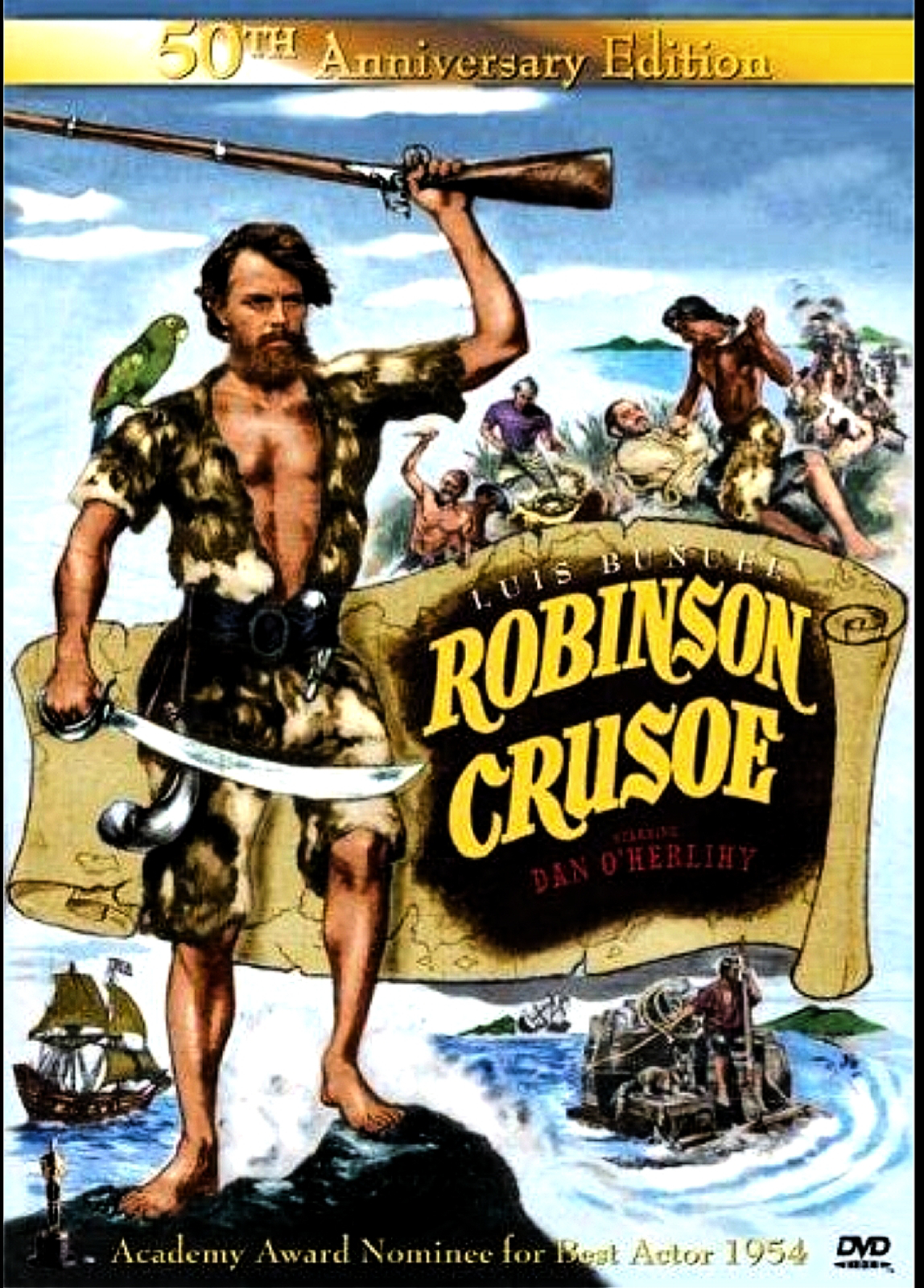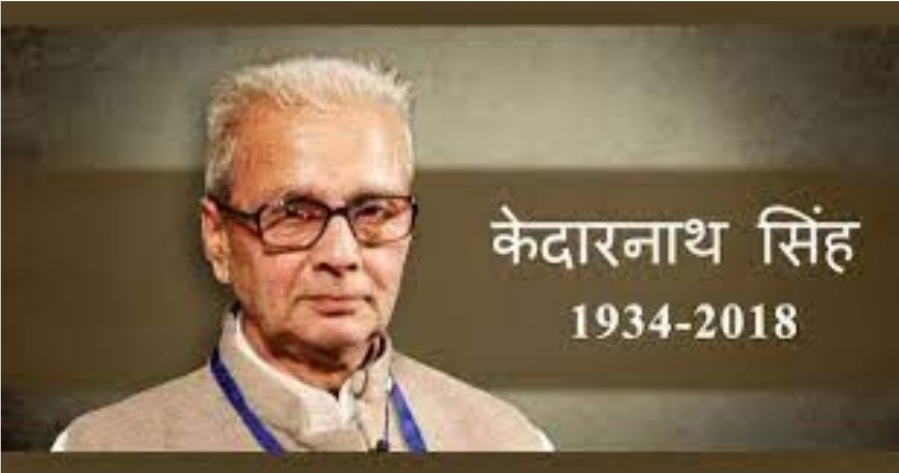THE ADVENTURES OF ROBINSON CRUSOE
THE ADVENTURES OF ROBINSON CRUSOE
‘The Adventures of Robinson Crusoe' directed by Luis Bunuel is a 1954 classic movie of Robinson Crusoe who is a man dragged to a desert island after a shipwreck. On 30th September 1659, his ship sinks and he miraculously survives on a deserted island somewhere in South America.
The film contains some of Bunuel’s most potent cinema: the feverish dream sequence where Crusoe’s father chides him for his adventurous, and, therefore, “wayward” spirit; the scene where he is so desperate to hear another human voice he goes to the Valley of the Echo and shouts a Psalm, and then walks in despair into the sea until his torch is extinguished by the waves; and the final scene where, leaving the island at last with Friday, he looks back for the last time, and hears the ghostly echo of his faithful, but long since dead dog, Rex, barking…
Shot in Pathécolor, some of the scenes are beautiful, whilst others could be improved upon, but the sheer drama and intellectual engagement it provides, overcome such minor technical faults, and the whole is wonderfully enhanced by a first-rate score by Anthony Collins and Luis Breton. Dan O’Herlihy as Crusoe carries the entire film, and was quite rightly nominated as “Best Actor” for this role at the 1954 Academy Awards.
This is about a castaway’s life and adventures on a deserted island. Narrated by the title character, ‘The Adventures of Robinson Crusoe’ is a movie which is a series of revelations about the castaway’s experiences on a distant island. Though it was probably influenced by multiple sources, this is mostly associated with real-life Scottish sailor and castaway Alexander Selkirk. The book ‘Robinson Crusoe’ by Daniel Defoe also planted the seed for realistic fiction and has been deemed as the first novel in English language.
‘Robinson Crusoe’ was immediately popular for its simplicity and life like story telling.
“Perhaps after my death, someone will discover the island and read my memoirs”.
Twenty four years after being shipwrecked with a few animals, Robinson Crusoe discovers that he’s been sharing the island with native cannibals. When one of these natives escapes, Crusoe saves him. He names him Friday and teaches him English, so that they can communicate. Crusoe’s European upbringing makes him feel superior to Friday, and his arrogance and colonial attitude are particularly demonstrated by his request and Friday calls him “master”. By contrast, Friday represents all the native people that are opposed by European imperialism.
Following his desire for adventure and his fondness for the ocean, Robinson Crusoe goes on numerous sea voyages. Despite disastrous results, he continues to pursue wealth, power and prestige by joining on Atlantic Slave trade expedition. Tragedy follows him again but he does not have time for deep feelings or to miss his family. Instead, after his shipwrecked on an island, the determined and resourceful Crusoe shows that he’s a modern man by using nature and reason to stay alive. When he discovers Cannibals, his morals and values prevent him from killing them because he realizes that they don’t know what they’re doing.
Some of the main themes of the movie relate to the idea of society, civilization and colonization, and the rules and orders that go along with them. These are demonstrated by Crusoe’s independence, use of European tools and weapons and his attempt to make Friday more civilized. His culture and beliefs are extremely important to him as is how much money he can make working at sea.
‘The Adventures of Robinson Crusoe’ is a story of adventure and the hero relies upon his own wits and courage to survive. He demonstrates self-reliance and travelling, building his plantation in Brazil and most of all surviving on the island. Robinson Crusoe’s castle is built for comfort and defense, and he has few materials but he manages to use what he does have in effective creative ways.
Rules and orders govern Crusoe’s life even on the island. His concept is based on his experience with European culture and civilization, and he does not recognize that natives have civilizations of their own life. He insists that Friday gives up his Cannibal ways, wear clothing and learn to speak English. Crusoe never adopts any cultural habits of anyone else. Crusoe does acknowledge that cannibalism is their culture. They do not see it as a sin. Progress is seen in this very notably. Crusoe goes from survival in the wild to hunting and farming. He makes his own tools and furniture, demonstrates animals, plant crops and establishes a real colony.
Element of Christianity is evident in this movie. Robinson Crusoe relies on God to take care of him. He finds that his quality of life improves as his faith in God becomes stronger. Crusoe teaches his faith to Friday and soon he seems like a devoted Christian. Friday asks questions that Crusoe finds difficult to answer. In teaching Friday, he becomes a more understanding Christian himself. Nature is important and one of the chief actors that have been guiding the story. Nature blows Crusoe’s ship onto the shores of the island but also provides calm sea, so Crusoe can salvage from the wrecked ship. Nature provides all that Crusoe enjoys and fears on the island and Crusoe learns during the movie that nature can provide bounty of cultivation, and even destruction if not treated with caution.
Crusoe’s success in mastering his situation, overcoming his obstacles and controlling his environment shows the condition of mastery in a positive light. Crusoe lands in an inhospitable environment and makes it his home. His farming and domestication of wild goats and parrots with Crusoe as their master illustrates his new found control. Moreover, Crusoe’s mastery over nature makes him master of his faith and himself.
It’s significant that Crusoe’s makeshift calendar does not simply mark the passing of days, but instead more egocentrically marks the days he has spent on the island. It is about him a sort of self conscious or autobiographical calendar with him at its center.
Island life is no longer necessarily a disaster to suffer through but may be an opportunity for employment justice for the Presbyterian. Life may be employed only after hard work has been finished and repentance achieved.
Robinson Crusoe’s experiences constitute not simply an adventure story in which thrilling things happen but also a moral tale illustrating the right and wrong ways to live one’s own life.
Fathimathul Shaharaban



Comments
Post a Comment